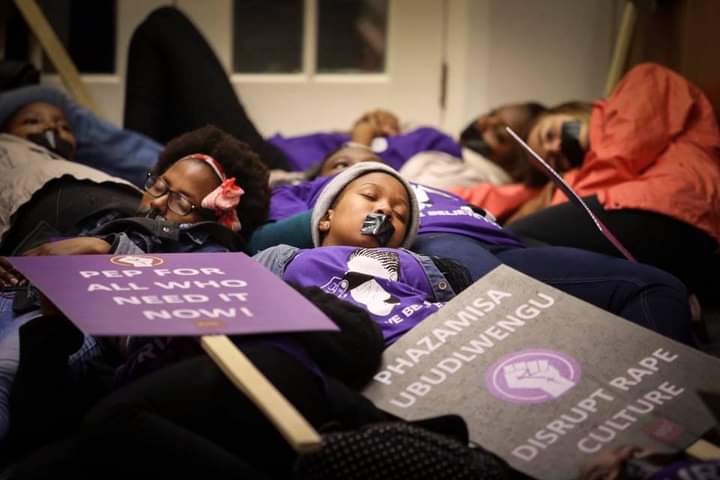When South Africa transitioned to democracy, in 1994, it’s key milestones was the establishment of citizenship rights for all its people. For the first time in history, the majority of Black South Africans were granted fundamental rights, including the ability to vote, move freely, associate without restriction, and express themselves openly. This represented a seismic shift in a country where apartheid had, for decades, segregated citizens by ethnicity, denying all but the white minority access to rights.
The 1996 Constitution enshrined these liberties, also guaranteeing access to essential services like land, education, healthcare, and employment.
However, more than two decades into democracy, the promise of full citizenship remains elusive for many, particularly for South African women. While legal frameworks have provided formal rights, the reality on the ground tells a different story—one marked by systemic gender violence that has made the concept of citizenship for women incomplete. As South African academic scholars highlight, full citizenship goes beyond the legal status of rights—it encompasses the ability to participate meaningfully and equally in society. For millions of women across the country, however, endemic sexual violence has become an insurmountable barrier to such participation.
The Reality of Gender-Based Violence
According to recent research presented in the Palgrave Handbook of Gender and Citizenship, sexual violence has become a normalized part of everyday life for women in South Africa. The country’s police statistics reveal alarming levels of sexual offenses, making it clear that, despite the nation’s progressive legal framework, women are systematically excluded from exercising their full citizenship.
The report emphasizes that the rights conferred by the Constitution—such as freedom of movement and the right to safety—are undermined daily by the threat of sexual violence. The situation has reached such a critical level that public spaces, which should belong to all citizens, are increasingly unsafe for women.
The violent reality they face is compounded by authorities’ failure to effectively enforce laws like the Sexual Offences Act and the Domestic Violence Act, which were introduced to protect women and prosecute offenders.
Protests as Acts of Citizenship
When citizens feel excluded from the full benefits of citizenship, they often turn to protests and other forms of activism to reclaim their rights. In South Africa, women have taken to the streets and engaged in activism to fight for their right to safety, dignity, and respect. These “acts of citizenship” are powerful, symbolic actions through which women assert their rights in a society that continues to marginalize them.
One of the most significant acts of citizenship in recent years occurred in 2016, during the #EndRapeCulture campaign**, when female university students protested against pervasive sexual violence on campuses across South Africa. The students employed dramatic tactics, including naked protests, to express their anger and frustration at university authorities’ failure to protect them from sexual assault. By stripping off their clothing and brandishing sjamboks (plastic whips), the protesters symbolically refused to be treated as less than citizens.
Their protest was not just about violence on campuses—it was a broader critique of a society that continues to allow gender-based violence to flourish. Their nakedness represented both vulnerability and defiance, a demand for the rights and recognition that had long been denied. These women were not passive victims but active citizens, forcing the nation to confront its failures.
Expanding the Notion of Citizenship
Through acts of citizenship like these, women are challenging traditional notions of what it means to be a citizen. Citizenship, they argue, is not just about legal rights; it is about the ability to live without fear of violence, to move freely in public spaces, and to have one’s voice heard. It is about the ability to demand justice and accountability from the state.
In this sense, citizenship becomes something that is performed and claimed rather than simply granted. It is an active process, involving protests, organizing campaigns, and other forms of activism.
These acts of citizenship may happen in public spaces, courts, or even through digital media. They are expressions of anger, grief, and frustration—emotions that are often excluded from the formal discourse of citizenship but are, nonetheless, crucial to it.
In the case of South Africa, acts of citizenship have not been limited to gender violence alone. The Trans Collective, a group of transgender students at the University of Cape Town, launched their own protest in 2016 to highlight the erasure of transgender experiences within the broader student movement. Their protest was an “affective” form of citizenship—a term used to describe how emotions like anger or grief can fuel political action. By smearing red paint on a student activism exhibit and using their paint-covered bodies to block the entrance to an art gallery, the Trans Collective forced onlookers to confront the physical and emotional violence experienced by transgender individuals.
Their actions highlighted a critical point: even within progressive movements, some voices are marginalized or silenced. The Trans Collective’s protest was a powerful act of citizenship that demanded recognition for transgender people as full citizens with equal rights.
The Role of Affective Citizenship
These examples demonstrate that acts of citizenship are not just about formal legal action; they are about emotions, expressions of anger, frustration, and hope. This concept, known as “affective citizenship,” plays a significant role in driving protests and other forms of activism. Affective citizenship is a way of reclaiming the emotional dimensions of public life, allowing marginalized groups to express their pain and demand recognition.
In South Africa, the politics of refusal—a term used to describe acts of resistance against unfair conditions—has become a central part of these affective citizenship actions. Through protests like #EndRapeCulture and the Trans Collective’s intervention, activists are rejecting the idea that violence and exclusion are normal. By disrupting the status quo, these acts of citizenship force society to confront uncomfortable truths about the ways in which women and transgender individuals are excluded from full participation in public life.
The Power of Activism in Shaping Citizenship
Acts of citizenship, whether through protest, art, or other forms of activism, serve several critical purposes. They make visible issues that are often ignored, challenge conventional understandings of citizenship, and create new spaces for political action. Perhaps most importantly, they assert the agency of marginalized groups in defining and claiming their rights.
As South Africa continues to grapple with deep-seated inequalities and violence, these acts of citizenship will remain crucial in pushing the boundaries of what it means to be a citizen. The battle for gender equity, diversity, and full participation in society is far from over, but through activism and protest, women and other marginalized groups are making their voices heard and reshaping the contours of South African democracy.
In doing so, they are not just fighting for their rights—they are redefining the very concept of citizenship itself, making it clear that true citizenship must include freedom from violence, fear, and exclusion. Only when these rights are fully realized can South Africa’s promise of democracy be fulfilled.




